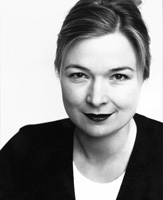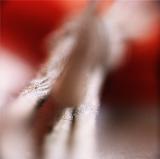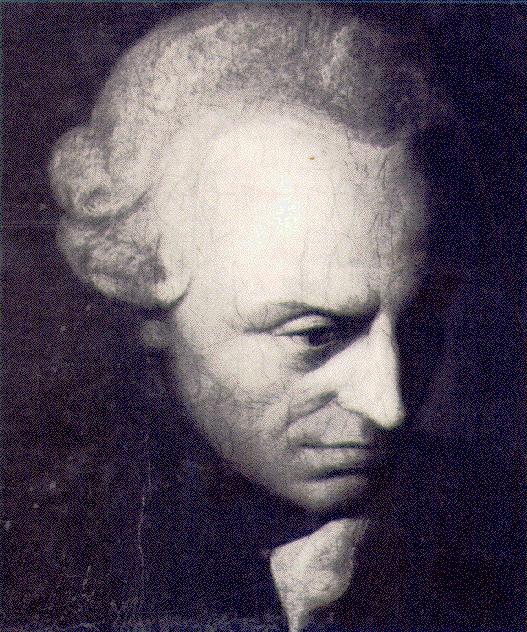30. mai 2006
4. mai 2006
on the meaning of houses and things inside them

Untitled (House) 1993
In a text on Whiteread Shelley Hornstein asked an exciting question: "What is the relationship of a thing to an idea, a house to a home?" This qustion is very relevant to my coming project, it is to the heart of what I will be studying.
2. mai 2006
ordinary aesthetics








I am working on my first sketches for a book. Reading aesthetic theory I’ve come to the conclusion that I have to do some thinking & writing on my own. Starting with Linda Nochlin’s essay Why Have There Been No Great Women Artists? (1971) I will ask:
Is there any great women artist today?
What is a great artist?
What is great art?
Can minor stories make great art?
My theoretical inspiration will come from feminism, post-structuralism and hermeneutics. As of the situation today I believe art is very dependent upon theory and criticism. Art need a to enter a larger discourse to become art. This put a heavy responsibility on anyone entering this discourse – a responsibility that is both aesthetical and ethical.
Art History has focused on men’s art from men’s point of view. This has given us men’s story and interpretation of the world. I will be looking for alternatives, for other narratives, for contemporary art histories.
Here is where I’m going to start looking:
i. Helle Helle (literature)
ii. Rachel Whiteread (sculpture/installation)
iii. Liza Lou (sculpture/installation)
iv. Päivi Laakso (literaure)
v. Trude Marstein (literature)
vi. Aino Kannisto (photo)
vii. Vibeke Tandberg (photo)
viii. Ghada Amer (textile)
Is there any great women artist today?
What is a great artist?
What is great art?
Can minor stories make great art?
My theoretical inspiration will come from feminism, post-structuralism and hermeneutics. As of the situation today I believe art is very dependent upon theory and criticism. Art need a to enter a larger discourse to become art. This put a heavy responsibility on anyone entering this discourse – a responsibility that is both aesthetical and ethical.
Art History has focused on men’s art from men’s point of view. This has given us men’s story and interpretation of the world. I will be looking for alternatives, for other narratives, for contemporary art histories.
Here is where I’m going to start looking:
i. Helle Helle (literature)
ii. Rachel Whiteread (sculpture/installation)
iii. Liza Lou (sculpture/installation)
iv. Päivi Laakso (literaure)
v. Trude Marstein (literature)
vi. Aino Kannisto (photo)
vii. Vibeke Tandberg (photo)
viii. Ghada Amer (textile)
1. mai 2006
The Advantages of Being a Woman Artist:
· Working without the pressure of success.
· Not having to be in shows with men.
· Having an escape from the art world in your 4 free-lance jobs.
· Knowing your career might pick up after you're eighty.
· Being reassured that whatever kind of art you make it will be labelled feminine.
· Not being stuck in a tenured teaching position.
· Seeing your ideas live on in the work of others.
· Having the opportunity to choose between career and motherhood.
· Not having to choke on those big cigars or paint in Italian suits.
· Having more time to work when your mate dumps you for someone younger.
· Being included in revised versions of art history.
· Not having to undergo the embarrassment of being called a genius.
· Getting your picture in the art magazines wearing a gorilla suit.
· Not having to be in shows with men.
· Having an escape from the art world in your 4 free-lance jobs.
· Knowing your career might pick up after you're eighty.
· Being reassured that whatever kind of art you make it will be labelled feminine.
· Not being stuck in a tenured teaching position.
· Seeing your ideas live on in the work of others.
· Having the opportunity to choose between career and motherhood.
· Not having to choke on those big cigars or paint in Italian suits.
· Having more time to work when your mate dumps you for someone younger.
· Being included in revised versions of art history.
· Not having to undergo the embarrassment of being called a genius.
· Getting your picture in the art magazines wearing a gorilla suit.
26. april 2006
 Vibeke Jensen exhibited in "Symbolsk Orden" Rogaland Kunstmuseum
Vibeke Jensen exhibited in "Symbolsk Orden" Rogaland Kunstmuseum These have been days filled with aesthetic theory, though not very much Kant. I have enjoyed reading, amongst others, Carolyn Korsmeyer on “feminist aesthetics” and Griselda Pollock’s Vision and Difference. I find Pollocks book intelligent, provocative and good for speeding off own thoughts. I am reading quite heavily in this field right now due to some lectures I’m going to deliver in May, but here are lots more to be done in this field. I think I at least will have to write my own book on the subject …
10. april 2006
6. april 2006
to kant
Reading more poststructuralist theory than Kantian philosophy these days - some questions seems necessary to post:
1. Can aesthetic judgement be anything more than a construction based in the language in which it is articulated, a discursive practice?
2. Is there a subject who can have a privileged access to a transcendent realm of aesthetic judgement?
3. Is aesthetic value an effect of different practices and institutions, rather than something caused by artworks?
4. Is it a good idea to start questioning Kant without even having read him properly?
5. Is it possible to read Kant today?
6. Is it meaningful?

What seems clear is that you have to relate the discussion of aesthetics to a discussion on self and subjectivity. The status one gives to the subjective self is of great importance to any debate of (im)possible aesthetic judgement.
1. Can aesthetic judgement be anything more than a construction based in the language in which it is articulated, a discursive practice?
2. Is there a subject who can have a privileged access to a transcendent realm of aesthetic judgement?
3. Is aesthetic value an effect of different practices and institutions, rather than something caused by artworks?
4. Is it a good idea to start questioning Kant without even having read him properly?
5. Is it possible to read Kant today?
6. Is it meaningful?

What seems clear is that you have to relate the discussion of aesthetics to a discussion on self and subjectivity. The status one gives to the subjective self is of great importance to any debate of (im)possible aesthetic judgement.
27. mars 2006
24. mars 2006
be prepared
23. mars 2006
kant'en
There can be no rule according to which anyone is forced to recognize anything as beautiful.
The judgement of taste is based on the feelings of pleasure but also claims universal validity – yet judgement of taste cannot be proven since they do not rest on concepts or rules.
To Kant pleasure can be communicable only if it is based on a state of mind that is universally communicable. Since this judgement isn’t connected to concept, it must connected to ‘cognition in general’ as opposed to a particular cognitive state of mind - .
The judgement takes the form of a conceptual judgement, since we speak of beauty as if it were a property of things and say ‘the thing is beautiful’.
The judgement of taste is based on the feelings of pleasure but also claims universal validity – yet judgement of taste cannot be proven since they do not rest on concepts or rules.
To Kant pleasure can be communicable only if it is based on a state of mind that is universally communicable. Since this judgement isn’t connected to concept, it must connected to ‘cognition in general’ as opposed to a particular cognitive state of mind - .
The judgement takes the form of a conceptual judgement, since we speak of beauty as if it were a property of things and say ‘the thing is beautiful’.
Kant read through the glasses of D.W.Crawford
I’m not sure that this has led me any further in my search for knowledge:
- What does he mean by subjective universality?
- How can anything be communicable without being based on concepts?
contemporary aesthetics
There seems to be no way around it. Working with contemporary aesthetic theory one has to consider Kant – seriously…
I therefore plan to spend some of my spare time in this guys strange company. Hoping that he might inspire me in my ongoing reflection on the concept of art.
I therefore plan to spend some of my spare time in this guys strange company. Hoping that he might inspire me in my ongoing reflection on the concept of art.
But now comes judgement, which in the order of our cognitive faculties forms a middle term between understanding and reason. Has it also got independent a priori principles? If so, are they constitutive, or are they merely regulative, thus indicating no special realm? And do they give a rule a priori to the feeling of pleasure and displeasure, as the middle term between the faculties of cognition and desire, just as understanding prescribes laws apriori for the former and reason for the latter? This is the topic to which the present Critique is devoted.
PREFACE TO THE FIRST EDITION 1790
14. mars 2006
Helle Helle

Men vi kunne lide de samme gode gamle rettene med sovs. Vi kunne også lide at ligge på sofaen, især mig. Dertil kom vores fælles glæde ved bagerbrød og ugeblader hver torsdag. Vores mor havde givet os smag for den slags, torsdag havde altid været ugens højdepunkt. Den tradition havde skabt en talemåde iblandt os:
- Ved du hva? Sagde den ene.
- Nej, og jeg vil selv læse det, sagde den anden.
Vi læste også Tove Ditlevsen og Knuth Becker og Pearl S. Buck. På skolen i Næstved var der en, der sagde til mig, at den slags ikke var riktig litteratur. Han hed Hans, og havde gået et år på universitetet. Jeg tillagde ikke hans udtalelser nogen særlig værdi. Hvis han var så stor en litterat, ville han vel ikke uddanne sig til ergoterapeut.
- Ved du hva? Sagde den ene.
- Nej, og jeg vil selv læse det, sagde den anden.
Vi læste også Tove Ditlevsen og Knuth Becker og Pearl S. Buck. På skolen i Næstved var der en, der sagde til mig, at den slags ikke var riktig litteratur. Han hed Hans, og havde gået et år på universitetet. Jeg tillagde ikke hans udtalelser nogen særlig værdi. Hvis han var så stor en litterat, ville han vel ikke uddanne sig til ergoterapeut.
2. mars 2006
Ian McEwan

I’ve spent quite a few hours in company with bad books lately, and started reading Saturday with not too great expectations. Now, after having finished it in a couple of days, I am still amazed. McEwan’s medical knowledge on the human brain is certainly impressive, but what makes it all breathtaking to me is his way of combining politics, natural sciences and arts in his negotiation on the meaning of life. Saturday puts the private man on the public scene in a brilliant way; the intimacy of lovers and families is connected to war and peace on a grand scale. Love and war, echoing the magnificent novels of the nineteenth century, compressed to the happenings of a day in the life of Henry Perowne. And this ‘compression’ - a life in a day - leads us on to another great English author – to Virginia Woolf. It is also possible to see Saturday as a comment on her novel Mrs. Dalloway. We find similarities in the dinner party preparations, the city walking, insanity and war, in how both authors show us the singular life and the larger world as interconnected – both fragile and exposed to threats.
20. februar 2006
Henrik Ibsen

2006 marks the 100th anniversary of the death of Henrik Ibsen. And we should therefore ask: Why is Ibsen still important? Right now the best arguments seems to come from feminist theorists like Toril Moi. While waiting for her book: Henrik Ibsen and the Birth of Modernism: Art, Theater, and Philosophy, we can spend some time with the latest NIKK magasin which focuses on gender analyses of his plays.
7. februar 2006
self portrait tuesday
It sometimes seems like my life without me would be the most accurate depiction of me - . Today’s choice of self portrait is inspired by the words of Henri Cartier-Bresson: “We always want to work with our brains, but we must be available and let our sensitivity direct us when we are looking at a work of art, as if we’re surfing on a wave. We must be open, open, open to what it gives us”. I like his wave metaphor; it makes me think of one of my great heroes, Virginia Woolf. Anyway, here it is, not necessarily all of me, but maybe a possible depiction of the emotional me on a self-portrait Tuesday?
 Doug Aitken: still from Electric Earth, 1999.
Doug Aitken: still from Electric Earth, 1999. 24. januar 2006
self portrait tuesday
22. januar 2006
Brooklyn Follies
I have been reading Paul Auster’s books for many years, starting with his New York trilogy around 1988. I must admit I haven’t been as impressed by his latest works as I was by the trilogy. And I wonder; is it me changing as a reader, or is it him having lost something?
His last book, The Brooklyn Follies I don’t even seem to manage finishing. It has a lot of nice minor stories, but the major plot? The narrator is commenting on the narration, and by this constructing some kind of meta-fiction, but this is nothing like the things Auster used to do. I do absolutely not like to put a half read novel away, but I think I’ll have to do it now, unless someone can give me a really good reason to continue – a reason which quite disappointingly doesn’t seem to be found in the book itself.
His last book, The Brooklyn Follies I don’t even seem to manage finishing. It has a lot of nice minor stories, but the major plot? The narrator is commenting on the narration, and by this constructing some kind of meta-fiction, but this is nothing like the things Auster used to do. I do absolutely not like to put a half read novel away, but I think I’ll have to do it now, unless someone can give me a really good reason to continue – a reason which quite disappointingly doesn’t seem to be found in the book itself.
Abonner på:
Innlegg (Atom)






